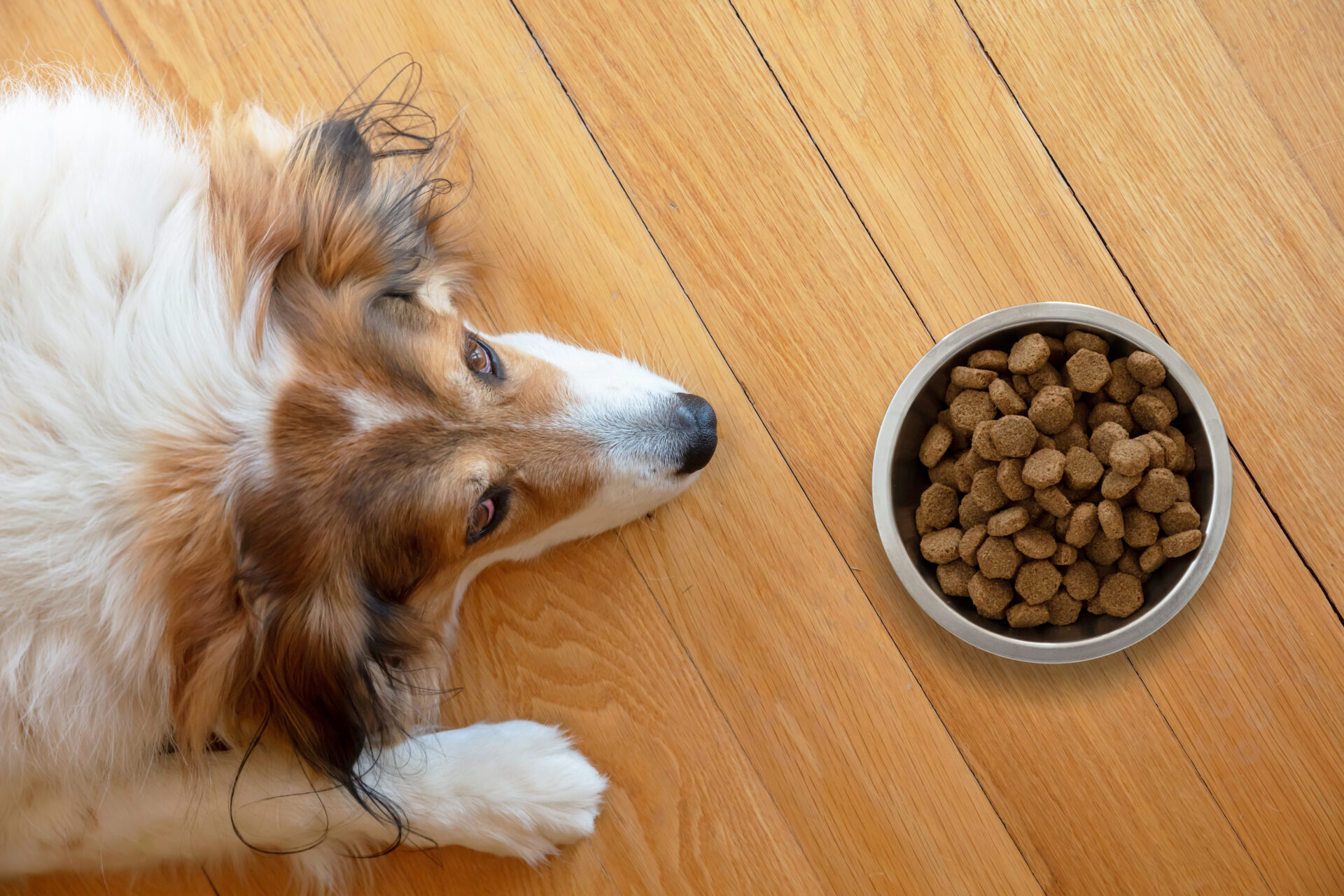Stomach upsets (gastroenteritis) in pets are very common and can range from mild vomiting or diarrhoea to more severe symptoms. As a pet owner, it’s useful to know how you can help your pet on these occasions, and when you need to seek advice from a veterinary surgeon. Luckily, there are lots of ways to support your pet through tummy trouble. Whether that’s by a change in diet, regular worming treatments, probiotic support or further testing at your vets, there will be different options for each individual patient.
What causes upset stomachs?
There are many reasons why your pet may have gastroenteritis.
Dietary causes are the most common. This may be because your pet has eaten something it shouldn’t have – scavenged some human food from the bin, for example, or eaten something noxious whilst out on a walk. Another dietary cause of upset tummies is a sudden change of diet. If you need to change your pet’s food, it is always best to do so gradually over a few days.
Another common cause of gastrointestinal upset is parasites. Intestinal worms such as roundworms, tapeworms, hookworms and whipworms can all cause symptoms such as weight loss, vomiting and diarrhoea. Other parasites, such as Giardia, can have similar signs.
Infections, such as parvovirus, a highly infectious virus seen commonly in puppies, can cause quite severe vomiting and diarrhoea in unvaccinated dogs. Bacterial infections can be carried in raw or undercooked food, and other infectious microorganisms can be found on other dogs, other pets, or even in the environment.
In some pets, food allergies and intolerances can lead to regular upset tummies. Other types of gastrointestinal disease such as obstructions and inflammatory disorders can also be culprits. Conditions affecting other organs, such as the liver or kidneys, can also cause symptoms such as vomiting.
Signs and symptoms
It’s usually pretty obvious if your pet has an upset stomach. Here are the common signs:
- Vomiting
- Diarrhoea
- Poor appetite
- Weight loss
- Lethargy
- Abdominal pain – your pet may sit or lie in abnormal positions, have a very hunched and tense posture and react negatively if you touch their belly or pick them up.
How to help
It’s never nice to see your beloved pet poorly, and we all want our pets to be as healthy and happy as they can be. Stomach upsets are a common problem in pets, often being mild and resolving within a day or two.
When to call the vet
If your pet is poorly, the first thing to decide is whether they need veterinary assistance. It is never the wrong decision to contact your local vet for advice or an appointment, but there are some situations in which veterinary intervention is highly recommended.
- Profuse vomiting
- Diarrhoea which doesn’t resolve in 24-48 hours
- Any blood in the vomit or diarrhoea
- The pet is very lethargic or unlike themselves
- Not eating or drinking
- Your pet seems to have a high temperature, is dehydrated or in pain
Homecare
Mild tummy upsets can often be managed at home, provided your pet remains fairly well in themselves and the symptoms are mild.
Acute help
Pets with tummy upsets need to be kept warm, quiet, hydrated and provided with an adequate diet. Offer fresh water regularly to them and encourage them to eat.
If your pet is poorly, it is instinctive to try and tempt them to eat with their favourite foods, but it’s best to avoid anything rich or fatty. Offer small but regular portions of a gastrointestinal diet – or plain food such as boiled chicken, white fish or scrambled egg. Once the symptoms have cleared, gradually reintroduce their normal food over the course of a few days.
There are some products that can help to clear up tummy upsets, such as Pro-Kolin. These types of supportive treatment contain probiotics and prebiotics – bacteria that are useful in your pet’s gastrointestinal system. They aim to re-balance and soothe the intestinal tract, helping to bind loose faeces and resolve tummy troubles faster.
Long-term management
Some pets are prone to gastrointestinal upsets. Some are sensitive to some food ingredients, others like to raid the bins repeatedly, but whatever the reason, dealing with multiple episodes can be frustrating and unpleasant.
There are some ways to help support your pet. Consider discussing your pet’s diet with your vet – they may do well on a food designed for more sensitive tummies. Try to prevent scavenging behaviours and keep their diet as stable as possible. Ensure all pets are up to date with preventative worming medication and are fully vaccinated against infections such as parvovirus. Your vet may suggest further tests if your pet is prone to digestive issues.
Some pets benefit from regular probiotics, such as Protexin Bio-Premium or Pro-Soluble. Using probiotics can help your pet’s microbiome (the collection of microorganisms within their intestinal system) remain stable, balanced and healthy.
Conclusion: dealing with stomach upsets in pets
Digestive problems are very common in pets, but most are thankfully fairly mild and some can be resolved at home. You can support your pet through these issues with a bland diet, plenty of rest and water, and probiotics. Always visit your vet if your pet is unwell in themselves, or the symptoms don’t rapidly improve.






